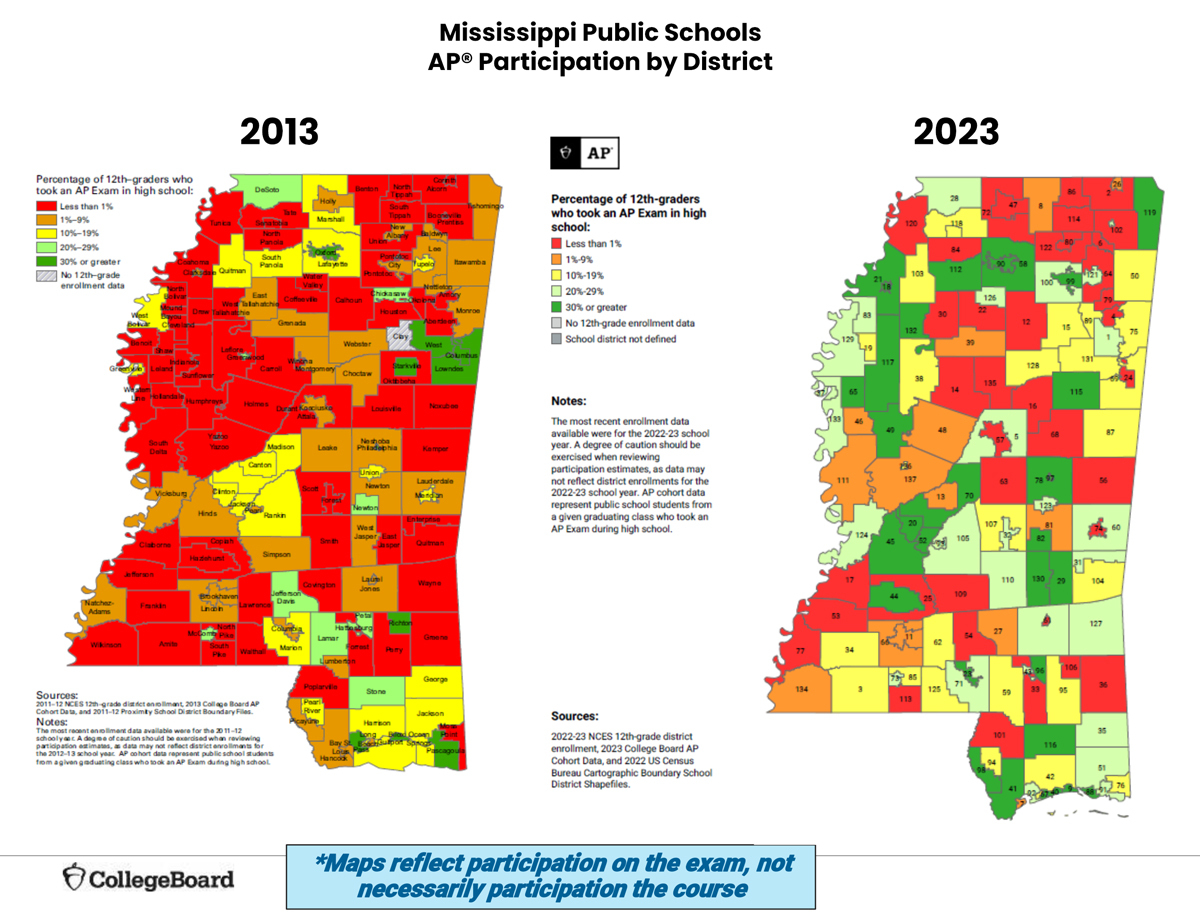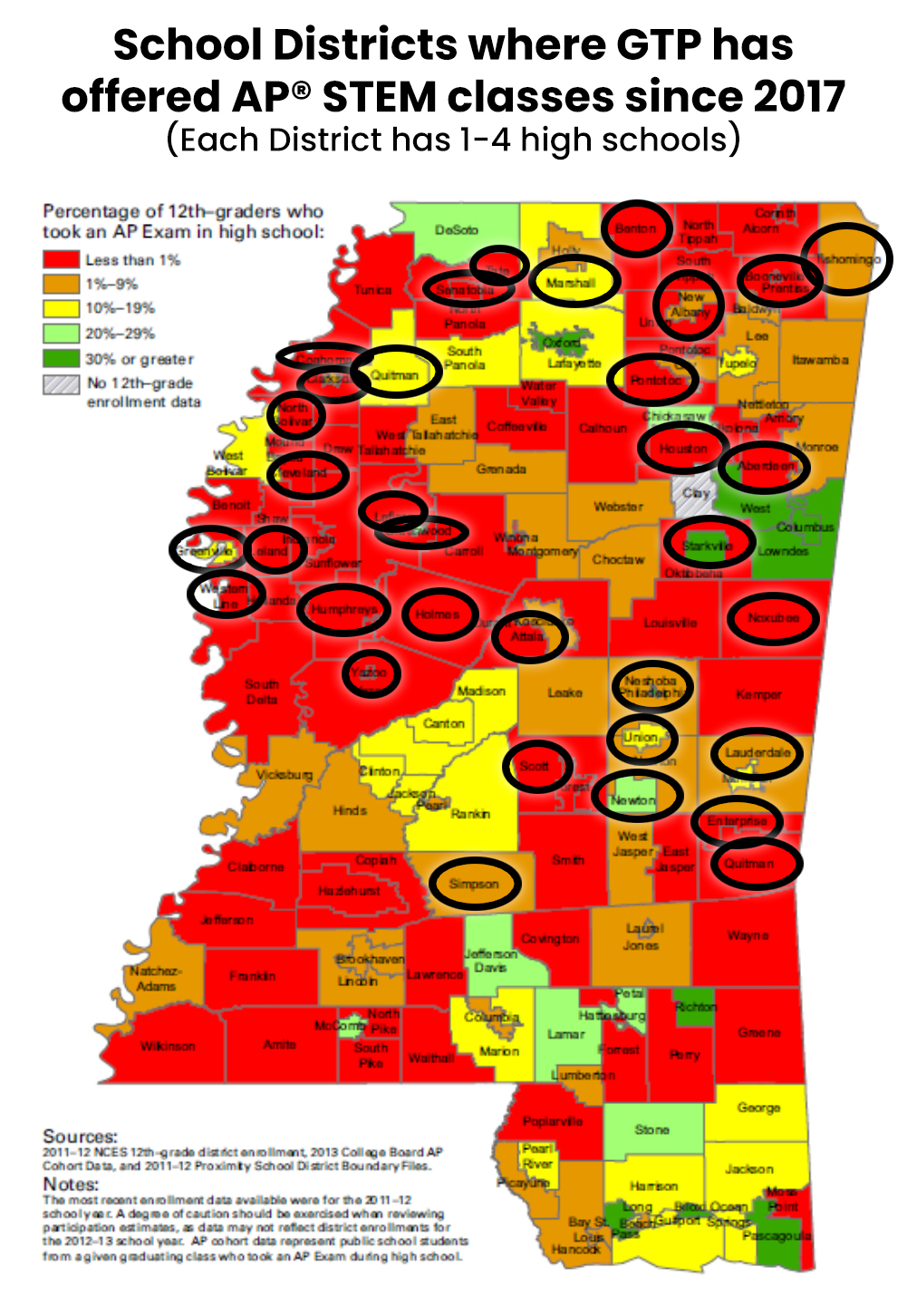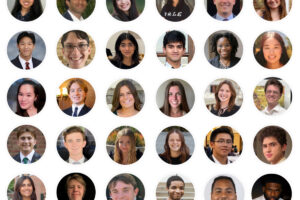
College Board Study Shows GTP Key to Expanding AP Offerings in Underserved Districts
A recent study by College Board, which created and administers the Advanced Placement (AP®) program, shows that the Global Teaching Project has been key to dramatically expanding opportunities for promising high school students from underserved Mississippi school districts to take AP classes over the past decade.
AP classes significantly help promising students achieve their full potential, and prepare them for college rigor. The Equity and Excellence Commission, an advisory committee chartered by Congress, concluded that disparities in AP access “aggravate the achievement gaps” and “impair our ability as a nation to raise student achievement.”
The College Board study analyzed the extent AP courses were offered in Mississippi in 2013, before GTP began its work, and 2023, seven years into GTP’s extensive programming throughout the state. The College Board maps below mark in red the school districts in which virtually no students took AP exams, with other colors corresponding to AP participation levels.

Prior to GTP, vast expanses of Mississippi had fewer than 1% of students take AP exams, a figure that, in practice, was almost always zero. Moreover, the school districts unable to provide access to AP courses were concentrated in the rural, high-poverty communities most in need of educational opportunity, notably the Delta, located in the northwest part of the state, which, by many metrics, is the most impoverished region in the nation.
By 2023, the picture had changed for the better, with far greater AP participation.

The map below shows the Global Teaching Project was largely responsible for the dramatic expansion in educational opportunity. Districts where GTP has introduced AP STEM courses are circled. The great majority of schools GTP serves previously offered no AP courses in any subjects. By bringing APs to those schools, GTP largely accounted for the transformation of the College Board maps of AP participation from 2013 to 2023
To this day, very few schools in rural, high-poverty areas—not just in Mississippi, but nationally—offer AP Science courses except through GTP. Among the nation’s 50 most impoverished school districts, the only schools to offer AP Physics, and a majority of the schools to offer AP Biology, AP Computer Science, and AP Statistics, do so through GTP, according to recent College Board and U.S. Census data.
The NAEP “Nation’s Report Card” released in recent days highlights the continued failure to develop the talents of the most promising students among the nearly three quarters of Mississippi students characterized as “economically disadvantaged”. That cohort—talented students from underserved communities—is, and always has been, GTP’s focus.
The NAEP reported data for 4th and 8th grade students in Math and Reading. Among 8th grade students, one percent of economically disadvantaged students scored as “advanced” in reading, and three percent in math. The College Board further reported that, in Math, the “performance gap [between economically disadvantaged students and others] was not significantly different” from 25 years ago.
Though much work remains, GTP is proud of the progress our partner schools and students have made.



